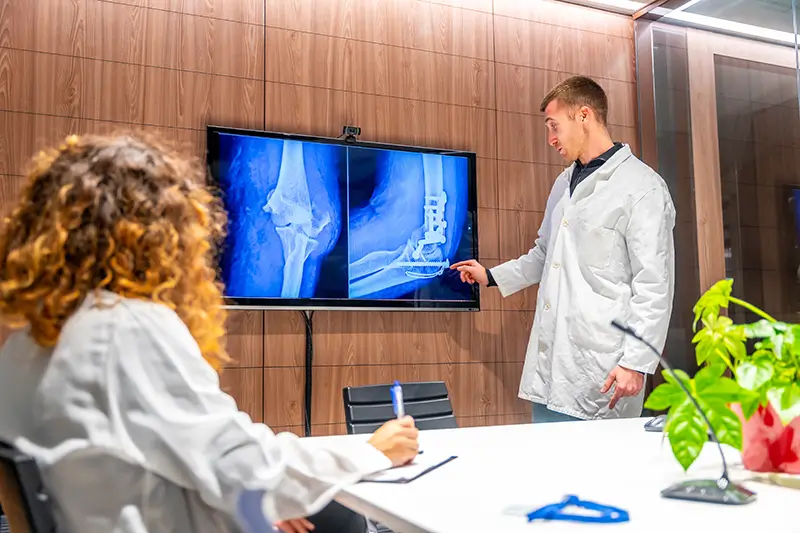Clinical documentation improvement (CDI) is getting more important than ever and plays a key role in patient care as well as reimbursement for any specialty, including Orthopedics. Medical coding services are essential for Orthopedic practices, due to the complex nature of bones and joints and the specificity of the codes. It is a very challenging process. Documentation is also key- healio.com highlights the results of a national survey presented at the American Academy of Orthopedic Surgeons (AAOS) Annual Meeting 2018. This survey found that most orthopedic trainees lack formal education in documentation and coding. The AAOS Annual Meeting is the largest yearly gathering of orthopedic surgeons and medical professionals in the world.
Researchers conducted an online survey of 596 orthopedic residents and fellows regarding their current experience and opinions about formal education on documentation and coding. Each respondent also provided a self-rating score for his or her confidence level to code independently without the assistance of an attending physician.
Of the 202 orthopedic residents and fellows who completed the survey, 49.5% reported they had no formal training sessions on documentation and coding during a training year.
The key findings of the survey are as follows:
- More than 80% of the residents and fellows who lacked education in documentation and coding said they wanted some form of formal education on documentation and coding implemented
- More than 90% of those who attend a training program with formal teaching in documentation and coding found the education was at least somewhat useful to overall training
- Overall, 109 respondents self-reported that they do not feel confident enough to code without the supervision of an attending physician
Dr. Matthew Varacallo, MD, an orthopedic surgeon in Philadelphia, Pennsylvania, who presented this survey at the meeting said that “The conflicting issues behind this stem from not only are physicians expected to correctly code for the services provided, but also with orthopedic surgery, we have at least 5 years of extra training beyond medical school. The expectations are there. So, it is rather surprising we get any in our training.”
A study published in The Spine Journal in 2017 also pointed out almost the same concern that orthopedic residents lag in clinical examination and documentation of spine pathology. This study aimed at meaningfully assessing the clinical skills of orthopedic post-graduate year (PGY)-1 interns. Based on the results of an objective structured clinical examination (OSCE) conducted for 13 orthopedic intern residents, this study highlighted significant shortcomings in the completeness of the interns’ spine history and physical examination, and the accuracy and completeness of their EMR note.
It was found that
- 2% (nine of the 13 interns) documented at least one finding that was not assessed or tested in the encounter, and
- 8% (four of the 13 interns) included inaccuracies in the medical record
Along with demonstrating that orthopedic residents require further instruction on the complexities of spinal examination, the study also validated the need for increased systemic support for improving resident documentation through comprehensive education and evaluation modules.
Both the studies stress the importance of better documentation training for the orthopedic specialty and accurate coding levels. Outsourcing the documentation tasks to medical billing and coding companies is a practical way to relieve these specialists from the complex medical coding and claim submission task.




